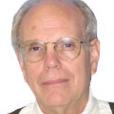Forty years ago, Dr. Lewis Thomas earned the 1975 National Book Award in two categories: Arts & Letters and The Sciences. In The Lives of a Cell: Notes of a Biology Watcher, he mulled the possibilities of defeating our genetic timetables and pondered interventions and recoveries of all kinds of life forms.
Some of the biomedical science and theories in Dr. Lewis Thomas’ collection of 29 essays – all of which were first published in the New England Journal of Medicine – have surely been refined, if not eclipsed. Nevertheless, his musings as “a Biology Watcher” are still worth sampling.
Related: One Man’s Powerful Longevity Lesson
Much of my biology watching involves swatting and squashing buzzing things. I was comforted, even emboldened, sort of, by Thomas’ explaining the replacement math: If we stand in a meadow or at a hillside, “almost everything we would catch sight of would be in the process of dying, and most things would be dead long before we would expire.... there’s constant renewal.... Everything that comes alive seems to be in trade for something that dies, cell for cell.”
Ahh, but, many species die out of sight: “It is the nature of animals to die alone, off somewhere, hidden” – confirming what Thomas characterized as “the impropriety of visible death.”
Perishing in the Open
Now, 40 years after Thomas’ mullings on various mortalities, electronic screens of every shape and size bring to our fields of vision what had been the visual province of doctors and nurses, with nurses still being frontline spotters, attenders, and reporters.
Thomas would surely continue to ascribe our thinking about death to “human chauvinism,” while staunchly advocating for much more emphasis on bio-medical research that would, in a way “inoculate” and “immunize” humans from ravaging disease that absorbs so much of our health care budgets. Nurses, he seemed to acknowledge, would still attend to the recoveries, as well as the departures.
Related: What '60 Minutes' Got Right and Wrong About Aging
Extending Longevity: Life Well Prolonged?
On the other hand, as was his wont, Thomas wondered what we would do with the time that medical science can extend to us – even when we may have “lost the zest for zest.”
In the essay titled “The Long Habit [of Living],” he nudged readers to acknowledge their semi-secret desire to outlive our respective predestined “genome timetables.” Since we presume to think we are able “to lead nature around by the nose,” perhaps, if we can just live another year or two, medical science will have figured out how we can put off death, again and again.
The essay provokes us to think about what we might accomplish by stopping the “genetic clock.” By “hankering to go on,” what would we do with our time other than “sitting on a porch re-examining our watch.”
Thomas returned to what medical research might do for medical science, which would in turn do for medicine: “Perhaps we would not be so anxious to prolong life if we did not detest so much the sickness of withdrawal.” He closed out the essay with examples of leave-taking that involved equanimity – “an awareness of quietude.”
Evolutions and Atmospherics
It would not come as a surprise that along with an essay about possible means to defeat our respective “genetic timetables,” Thomas wrote about the earth’s timetable.
Related: 5 Key Insights Driving the Silver Economy
In the collection’s concluding essay, “The World’s Biggest Membrane,” Thomas launched some poetical phrasings: From space, “The rising earth is the only exuberant thing in our cosmos.... When the earth came alive it began constructing its own membrane, for the general purpose of editing the sun.” He wondered, “Was oxygen the kick-starter for evolution, or was evolution the progenitor of oxygen?” Either way, “fantastic luck.”
The sky is “a miraculous achievement.... for sheer size and perfection of function, it is far and away the grandest product of collaboration in all of nature.”
The Lives of a Cell was just the beginning. Thomas, who held top executive posts at NYU Medical, Yale Medical School, and Memorial Sloan-Kettering Cancer Center, continued to muse about such collaborations (cosmic and microbiological) until his death in 1993.
Top Reads from The Fiscal Times:






